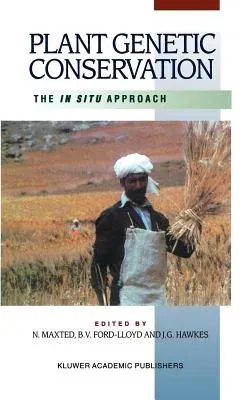Nigel Maxted
(Author)Plant Genetic Conservation: The in Situ Approach (1997)Hardcover - 1997, 31 January 1997

Qty
1
Turbo
Ships in 2 - 3 days
In Stock
Free Delivery
Cash on Delivery
15 Days
Free Returns
Secure Checkout

Print Length
446 pages
Language
English
Publisher
Springer
Date Published
31 Jan 1997
ISBN-10
0412634007
ISBN-13
9780412634000
Description
Product Details
Book Edition:
1997
Book Format:
Hardcover
Country of Origin:
US
Date Published:
31 January 1997
Dimensions:
23.39 x
15.6 x
2.69 cm
Genre:
Ecology
ISBN-10:
0412634007
ISBN-13:
9780412634000
Language:
English
Location:
Dordrecht
Pages:
446
Publisher:
Weight:
839.15 gm